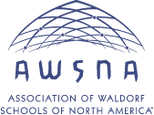Waldorf Education on Canada's West Coast
Waldorf Education: An Introduction
Waldorf schools offer a developmentally appropriate, experiential, and academically rigorous approach to education. They integrate the arts in all academic disciplines for children from preschool through twelfth grade to enhance and enrich learning. Waldorf Education aims to inspire life-long learning in all students and to enable them to fully develop their unique capacities.
Founded in the early 20th century, Waldorf Education is based on the insights, teachings and principles of education outlined by the world-renowned artist, and scientist, Rudolf Steiner. The principles of Waldorf Education evolve from an understanding of human development that addresses the needs of the growing child.
Music, dance and theatre, writing, literature, legends and myths are not simply subjects to be read about and tested. They are experienced. Through these experiences, Waldorf students cultivate their intellectual, emotional, physical and spiritual capacities to be individuals certain of their paths and to be of service to the world.
Waldorf Education is independent and inclusive. It upholds the principles of freedom in education and engages independent administration locally, continentally and internationally. It is regionally appropriate education with hundreds of schools worldwide today1.
Founded in the early 20th century, Waldorf Education is based on the insights, teachings and principles of education outlined by the world-renowned artist, and scientist, Rudolf Steiner. The principles of Waldorf Education evolve from an understanding of human development that addresses the needs of the growing child.
Music, dance and theatre, writing, literature, legends and myths are not simply subjects to be read about and tested. They are experienced. Through these experiences, Waldorf students cultivate their intellectual, emotional, physical and spiritual capacities to be individuals certain of their paths and to be of service to the world.
Waldorf Education is independent and inclusive. It upholds the principles of freedom in education and engages independent administration locally, continentally and internationally. It is regionally appropriate education with hundreds of schools worldwide today1.
Waldorf in BC
Waldorf Schools in BC are members of AWSNA – the Association of Waldorf Schools of North America. AWSNA is a non-profit membership organization that supports Waldorf schools through collaborative regional work, professional and resource development, accreditation, community outreach, and advocacy. The schools listed as part of the BC Waldorf Collective have all received accreditation from AWSNA and as such, are permitted to use the trademark name “Waldorf” to describe and label their school and curriculum. The accreditation process is a repeating 7-year process that includes intense school self-study and preparation. During this process schools measure their workings against the Principles for Waldorf Schools and receive yearly support visits from an AWSNA representative.
Waldorf Schools in BC are also accredited by the BC Ministry of Education and Child Care as Group 1 or 2 schools and are governed by the Independent Schools Branch. This accreditation process is completed similarly to the AWSNA accreditation process in that evaluation teams or inspectors visit a school to ensure that specific criteria is met. The accreditation process in this case includes a 6-year repeating evaluation cycle and a 2-year repeating inspection cycle. During this process schools develop their documentation to show compliance with legislative and statutory regulations, acts, and orders.
Each school in the BC Waldorf Collective is also a member of FISA – the Federation of Independent School Associations. FISA supports independent schools in BC by promoting the rightful place of independence in a democratic society and protecting parents’ right to choose the education they want for their children. FISA provides support and guidance in navigating the relationship with the Ministry as well as provides a forum for collaboration between independent schools in BC.
The BC Waldorf Collective has the shared goal of ensuring provincial quality in the expression of Waldorf education. Although each school is an autonomous institution, the BC Waldorf Collective collaborate in many areas including statutory policies, professional development for leaders and teachers, program improvement goal setting, and operational troubleshooting. At this time the BC Waldorf Collective is made up of seven schools located across the province.
Waldorf Schools in BC are members of AWSNA – the Association of Waldorf Schools of North America. AWSNA is a non-profit membership organization that supports Waldorf schools through collaborative regional work, professional and resource development, accreditation, community outreach, and advocacy. The schools listed as part of the BC Waldorf Collective have all received accreditation from AWSNA and as such, are permitted to use the trademark name “Waldorf” to describe and label their school and curriculum. The accreditation process is a repeating 7-year process that includes intense school self-study and preparation. During this process schools measure their workings against the Principles for Waldorf Schools and receive yearly support visits from an AWSNA representative.
Waldorf Schools in BC are also accredited by the BC Ministry of Education and Child Care as Group 1 or 2 schools and are governed by the Independent Schools Branch. This accreditation process is completed similarly to the AWSNA accreditation process in that evaluation teams or inspectors visit a school to ensure that specific criteria is met. The accreditation process in this case includes a 6-year repeating evaluation cycle and a 2-year repeating inspection cycle. During this process schools develop their documentation to show compliance with legislative and statutory regulations, acts, and orders.
Each school in the BC Waldorf Collective is also a member of FISA – the Federation of Independent School Associations. FISA supports independent schools in BC by promoting the rightful place of independence in a democratic society and protecting parents’ right to choose the education they want for their children. FISA provides support and guidance in navigating the relationship with the Ministry as well as provides a forum for collaboration between independent schools in BC.
The BC Waldorf Collective has the shared goal of ensuring provincial quality in the expression of Waldorf education. Although each school is an autonomous institution, the BC Waldorf Collective collaborate in many areas including statutory policies, professional development for leaders and teachers, program improvement goal setting, and operational troubleshooting. At this time the BC Waldorf Collective is made up of seven schools located across the province.
Adopted Declaration of British Columbia Waldorf Schools
BC Waldorf Schools have, since their inception, espoused principles of respect for human rights and the diversity of humankind. Today, all BC Waldorf schools continue to define diversity as a range of racial identifications, ancestries, nationalities, native languages, socioeconomic backgrounds, family structures, ages, belief systems, gender and sexual identities, abilities, appearances, occupations, and political affiliations. Enhancing our diversity is a journey of both moral and educational importance and a learning and growth experience for all.
Land Acknowledgement: BC Waldorf Schools Collective
The BC Waldorf Collective represents the seven Waldorf schools in the territory now known as British Columbia. Each Waldorf school articulates a unique acknowledgment to humbly recognize the specific First Nations on whose lands they reside. With sincere gratitude and respect, we honour the First Nations’ immemorial presence and ongoing relationships with the sacred lands where we now live, work, learn, and play.
Waldorf schools commit to understanding and sharing truth, and to engaging in collaborative, distinctions-based actions of healing and reconciliation that supports the well-being and education of Indigenous students. They have the right to see themselves, their families, and cultures reflected in all aspects of school life to support their positive growth and development. First Nations, as rights holders, are to be meaningfully consulted to provide input and guidance for the education of their children.
Schools hold special responsibility for acknowledging their colonial histories, the ongoing impacts of colonization and systemic oppression of Indigenous children, families, and communities. Waldorf school teams take organizational responsibility by educating ourselves and others, reflecting on our actions, and learning from mistakes to promote healing and advance reconciliation. Waldorf schools strive to improve educational practices by including Indigenous voices, worldviews and content in school programming, environment, and culture. Within our schools and larger communities, we work to support the recovery, resilience and strength of Indigenous children, families, and communities.
Feedback is warmly welcome on this Land Acknowledgment through the contact page on this website.
Waldorf schools commit to understanding and sharing truth, and to engaging in collaborative, distinctions-based actions of healing and reconciliation that supports the well-being and education of Indigenous students. They have the right to see themselves, their families, and cultures reflected in all aspects of school life to support their positive growth and development. First Nations, as rights holders, are to be meaningfully consulted to provide input and guidance for the education of their children.
Schools hold special responsibility for acknowledging their colonial histories, the ongoing impacts of colonization and systemic oppression of Indigenous children, families, and communities. Waldorf school teams take organizational responsibility by educating ourselves and others, reflecting on our actions, and learning from mistakes to promote healing and advance reconciliation. Waldorf schools strive to improve educational practices by including Indigenous voices, worldviews and content in school programming, environment, and culture. Within our schools and larger communities, we work to support the recovery, resilience and strength of Indigenous children, families, and communities.
Feedback is warmly welcome on this Land Acknowledgment through the contact page on this website.
“Waldorf education is not a pedagogical system but an art – the art of awakening what is actually there within the human being.” |


